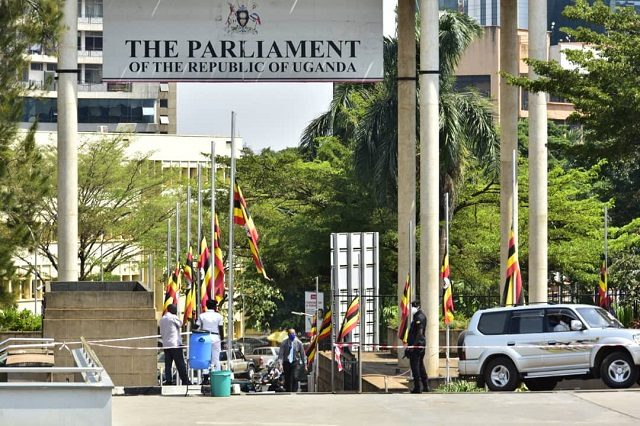
Kampala, Uganda | THE INDEPENDENT | A section of Members of Parliament have called for regional parliamentary session in a bid to close the gap between the Legislature and the electorate.
This was during a debate on a motion for a resolution of Parliament to commemorate 100 years of existence of the Legislature in Uganda presented by Minister of Public Service, Muruli Mukasa.
The MPs led by West Budama South MP Jacob Oboth proposed that the 11th Parliament should consider taking parliamentary sittings to the different regions of the country. Weekly Sittings are currently held at the Parliament Building in the Central region.
Oboth says that Parliament needs to get closer to the people by reviving outreaches so that it reaches the different regions of the country and interact with the people.
“We need to move parliament to the regions…it is time we go to the people. There are areas with no radios,” said Jennifer Namuyangu the Pallisa Woman MP.
Speaker Rebecca Kadaga said that the commemoration of 100 years accords them an opportunity to reflect on the task ahead of the 11th Parliament and subsequent Parliaments especially at a time the society grapples with social, economic inequities, rampant human rights violations, and rampant population growth among others.
Kadaga says that there should be equitable distribution of opportunities, benefits of growth, narrowing the gap between the haves and have not, respect for human and people’s rights and sustainable conservation of endangered environment.
Uganda’s Parliament dates back to the colonial period when the British Colonial Office established the first legislature, called the Legislative Council (LEGCO), with its first sitting on March 23, 1921, in Entebbe.
At its inception, LEGCO had seven unelected Members who were all Europeans and was chaired by the then Governor, Sir Robert Croydon. It had limited legislative powers as most important decisions came from the British Government and its main role was making legislation for law and order in the Uganda Protectorate.
According to Kadaga, the Legislative Council grew in response to the need for increased representation of the natives, rising to 32 Members in 1950, 61 Members by 1955 and 78 by 1961.
“The evolution of the institution of the Legislature has witnessed tremendous growth in mandate, size and impact. From the seven Members of the LEGCO in 1921, the current 10th Parliament of Uganda has 457 Members and the 11th Parliament that will commence in May 2021 will have 529 Members,” says Kadaga.
She also notes the widened mandate of Parliament including representation, legislation, oversight and appropriation.
“Parliament has become more independent and is composed of various interest groups and is now fully in the hands of Ugandans. The 100-year evolution of the Parliament of Uganda has witnessed various milestones, landmark legislation, far-reaching resolutions, and a generally positive impact on the growth and development of the state of Uganda,” Kadaga adds.
She also notes that the country’s legislative history has also been rife with challenges pointing out a period between 1971-1979 when the country did not have a Legislature due to the political situation under the leadership of former President Idi Amin Dada.
However, Kadaga says that whether the history is positive or negative, it offers helpful lessons on what to uphold and what to avoid.
She said that they have decided to only consider a commemorative motion on the centennial milestone and hold a photo exhibition depicting the legislature over the years due to the Covid-19 pandemic. Kadaga says that a befitting commemoration of 100 years would be scheduled at a later date.
In his motion adopted by fellow legislators, Minister of Public Service Muruli Mukasa said that over the years, parliament has advocated for good governance through promotion of accountability, interests of marginalized persons and other special interest groups.
Veronica Eragu Bichetero, the Kaberamaido County MP said that Parliament has been at a forefront of the political, social and economic development of Uganda.
She said that this has been done through enactment of legislation including the Constitution and promoting democratic governance in Uganda, holding government accountable, promotion of human rights and others.
James Kakooza, the Kabula County MP said he was proud of Parliament for passing the Budget Act, the first of its kind in Africa and that this development had made many other Parliaments come to Ugandan to benchmark and learn about the law.
Speakers of Parliament Over the Years 1. Sir John Bowes Griffin, Speaker of the Uganda Legislative Council (1958-1962) and Uganda National Assembly (1962-1963)
2. Narenda M. Patel, Speaker of the National Assembly (1963-1971)
3. Edward Rugumayo, Chairman, National Consultative Council (1979-1980)
4. Alexander Waibale, Chairman, National Consultative Council, 1980
5. Francis Butagira, Speaker of Parliament (1980-1985)
6. Yoweri Kaguta Museveni, Chairman, National Resistance Council (1986-1996)
7. James Wapakhabulo, Speaker of the Constituent Assembly (1996-1998)
8. Francis Ayume, Speaker of Parliament (1998-2001)
9. Edward K. Ssekandi, Speaker of Parliament (2001-2011)
10. Rebecca A. Kadaga, Speaker of Parliament (2011 to date)
********
URN
The post MPs call for regional sessions as parliament marks 100 years of existence appeared first on The Independent Uganda:.
from The Independent Uganda: https://ift.tt/3f9AEhj
0 Comments